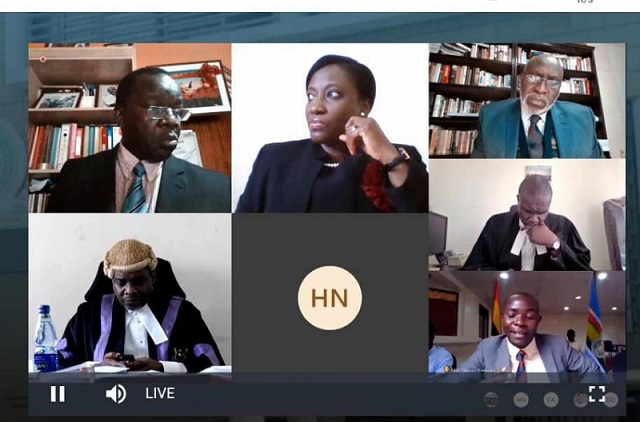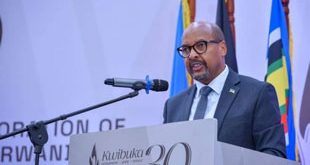
Kampala, Uganda | THE INDEPENDENT | The Appeal Division of the East African Court of Justice has set February 24, 2022 as the date to hear the case in which lawyer Male Mabirizi-Kiwanuka is challenging the age limit removal from the Constitution of Uganda.
A hearing notice dated January 17, by the court has already been served to both Mabirizi and the Attorney General.
The case was conferenced in 2021 and both parties filed written submissions which will be highlighted at the hearing in the capital Arusha, Tanzania before a panel of five justices.
“Take notice that the above matter has been fixed for hearing, on Thursday the 24th day of February 2022 at 9:30 am before Honorable Justices: Nestor Kayobera, President (Burundi), Geoffrey Kiryabwire – Vice President (Uganda), Saudah Mjasiri (Tanzania), Anita Mugeni (Rwanda) and Kathurima M’Inoti (Kenya)”, read part of the notice.
Mabirizi petitioned the court challenging the decision by the Constitutional and Supreme Court to uphold the Constitutional Amendment Act 2018. He argued that Act paved the way for scrapping the presidential age limits at 35 years for the lower and 75 years for the upper limit.
Mabirizi first went to the Constitutional Court together with Uganda Law Society and six opposition lawmakers and asked for nullification of the Act on grounds that the bill, which eventually led to the Constitutional Amendment Act 2018 was illegally passed.
The petitioners argued that the process leading to its enactment was marred with several irregularities like violence, bribery, and failure to consult the citizens.
Court also heard that the bill was sent to the Executive for assenting by the then Speaker of Parliament, Rebecca Kadaga well knowing that it had errors like an invalid certificate of compliance among other grounds.
But the four of the five-member panel of the Constitutional Court judges who included the then Deputy Chief Justice, Alfonse Owiny Dollo, Cheborion Barishaki, Elizabeth Musoke, and Remmy Kasule ruled that the bill in question was passed lawfully. It was only Justice Kenneth Kakuru who differed, arguing that Parliament erred in law for failing to consult citizens.
However, Mabirizi and the Law Society and six opposition MPs were dissatisfied with the ruling and decided to petition the Supreme Court, which also upheld the constitutional court judgment in a split decision of four against three.
Dissatisfied again with this decision, Mabirizi petitioned the East African Court of Justice which later dismissed the legislators’ appeal before it could be heard over late submission.
*****
URN
 The Independent Uganda: You get the Truth we Pay the Price
The Independent Uganda: You get the Truth we Pay the Price


